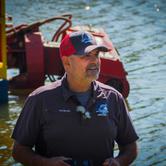HOA Stormwater Retention Ponds: A Luxury or Liability?
Homeowner Associations are responsible for maintaining and upkeep pre-planned communities throughout the U.S. Developers and investors must include stormwater retention ponds when building new homes, as required by law—although they are not commonly referred to by that name. Since the dawn of mankind, people have valued living on or near a body of water. Nothing increases the value of a home like a pond or lake in the backyard. Once the hole is full of water, Mother Nature will try to reclaim the dry land, posing a challenge for artificial stormwater retention ponds. Artificial ponds without a water source, such as a spring or river, are constantly undergoing biological and physical processes that are trying to turn them into grassy meadows. Without maintenance and proper upkeep, a stormwater retention pond in an HOA community can be an eyesore, lower property values, and ultimately be a legal liability. We will look at several aspects of HOA ponds and what maintenance crews and HOA managers can do to prevent these ticking time bombs from causing more problems than they're worth.
Nonexistent or Poor HOA Maintenance
The local ponds are crystal-clear and working as intended when communities are brand new. The stormwater retention system works as expected, and everything seems peachy-keen. Flash forward a few years, and most HOA ponds tend to look like a swamp filled with toxic sludge. This result is mainly due to the lake's poor or nonexistent HOA maintenance. Sometimes, the HOA members don't realize or understand how vital pond maintenance is, and other times, there's confusion about whose responsibility it is to maintain the ponds. When push comes to shove, the HOAs often put that responsibility on the shoulders of homeowners, which can cause a proverbial powder keg to explode when the residents suddenly face a massive bill to repair or fix damage caused by the water retention pond.
What Are Most HOAs Doing for Stormwater Retention Pond Maintenance?
The vast majority of HOAs will hire an outside company to spray chemicals in the pond to prevent algae and sludge buildup. The inherent problem with this is that it only treats a symptom, not the actual cause of the algae and smelly muck. HOAs will spend tens of thousands of dollars yearly on pond maintenance, only to scratch their heads when a toxic blue-green algae outbreak occurs. Ponds and other bodies of water attract organic debris such as leaves, grass, dead plants/animals, and industrial runoff. These elements go straight down to the bottom of the pond, where there is very little oxygen. This means that the rotting leaves and other organic matter have nothing to keep them in check. As such, these ponds become very nutrient-rich, which feeds nuisance algae and plant life. While chemicals can treat and push back the outbreak, they can't help biodegrade the rotting organic material that naturally collects at the bottom of the pond.
Dredging for HOA Ponds
Suppose you're in charge of pond maintenance for your HOA community. In that case, you can save thousands of dollars in maintenance costs for your homeowner's association and the residents by dredging each pond once every 12 months. Professional dredging will remove the organic sludge and muck that fuels nuisance and toxic algae outbreaks. As a bonus, the muck can be used as organic fertilizer in community gardens and grassy areas. HOA communities with enough money budgeted for annual pond dredging spend much less money on maintenance than those without.
HOA Pond Dredging Experts
We have over 20 years of HOA pond dredging experience at American Underwater Services. Our expert workers will come to your job site and give you a professional evaluation and estimate of the scope of work needed. No pond is too big or too small for our custom dredgers. If you are in charge of maintenance for an HOA community or would like to learn more about our pond dredging and maintenance services, call (817) 377-8512. One of our friendly dredging experts will be more than happy to answer any questions.
Nonexistent or Poor HOA Maintenance
Most privately owned retention ponds need to be better maintained and managed. At best, most HOAs may hire a lake or pond maintenance service that occasionally removes algae and applies chemicals to maintain water quality. But a retention pond is not equivalent to a swimming pool. Proper long-term maintenance requires regular inspection and repair of stormwater infrastructure that feeds water into the pond, as well as any weir or dam that controls water overflow to a wetland, another body of water, or communities located downstream.
HOA Stormwater Retention Pond Maintenance
Routine and Non-routine HOA maintenance will always be needed for a stormwater retention pond. If maintenance is addressed and done correctly, a false sense of security exists for the stormwater retention ponds' temporary storage abilities during a significant storm event and their pollutant removal abilities during a typical runoff event.




